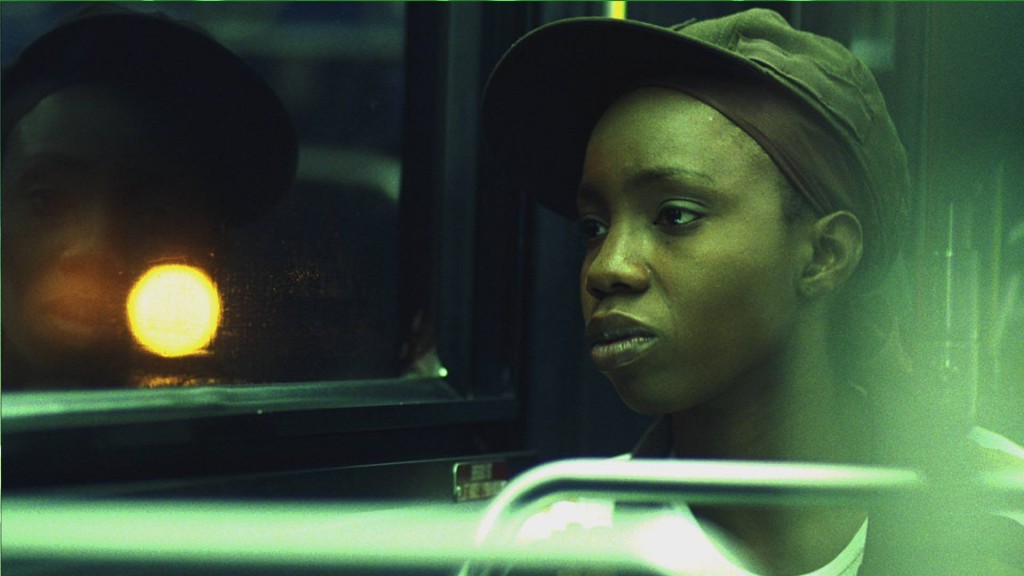Culture
A “Pariah” in Brooklyn

Pariah
dir. Dee Rees
Release Date: Jan 06, 11
- 1
- 2
- 3
- 4
- 5
- 6
- 7
- 8
- 9
- 10
When Pariah was described to me, the person who told me about the film promised that it would be “like Precious, but if Precious were a lesbian and could read. And didn’t have AIDS and wasn’t pregnant.” So, I’m going to tell you up front that this film is nothing like that, and Pariah is actually much better the urban histrionics of its precessor. For the most part, Pariah is a simple coming-of-age story, which has gotten some advance buzz mostly for its demographic subject matter. Its heroine, 17-year-old Alike, is slowly coming to terms with her sexuality, one that puts her at odds with her community and her family.
If you’ve ever seen an LGBT film, you have a good idea of what’s going to happen, and the film charts the queer movie road map well. In the film, we are introduced to the best friend who may harbor a secret love for the heroine, the first love, the supportive sibling and the less supportive parents. For a while, the protagonist struggles with their sexuality but begins to find themselves by standing up and slowly learning to be proud of who they are. This always ends on a bus to somewhere else, a trope that the non-queer Ghost World and TV’s Freaks and Geeks likewise used memorably. There are really only so many ways to tell a queer coming of age story, but what makes Pariah special isn’t its genre or subject matter. Rather, it’s the beauty and intimacy with which director Dee Rees brings Alike’s story to life.
Of course, this begins with her lead, the thirty-year-old Adepero Oduye, who somehow manages to fully inhabit her character, one that happens to be half her age. Oduye perfectly captures Alike’s innocence, her desire to find herself but fear of what that might entail, the ways in which growing up might mean growing out of the Brooklyn life she has known.
In particular, this involves her parents, Audrey and Arthur, a middle-class couple struggling to save face toward what will undoubtedly be the end of their marriage. Although most of their problems are left up to the imagination, we can see that many of their root problems stem from Arthur’s infidelity and Audrey’s need to appear well-to-do, one that keeps her police officer husband working more often that not. Interestingly, the problems of their marriage end up playing into the ways in which they deal with their daughter’s burgeoning coming out. Actors Charles Parnell and Kim Wayans, who shows that the Wayans family is good for at least one thing, do a fantastic job of showing us the parallels in their emotional responses.
In particular, Wayans steals just about every scene she’s in, showing the ways in which her obsessive need for control over her own life and marriage lead to an inability to accept her daughter for who she is. For most of the film, the church-going Audrey attempts to micromanage her daughter into heterosexuality, by dissuading Alike from hanging out with her lesbian best friend, and forcing her to dress more “ladylike.” Although this is partially about Alike’s sexuality, Rees smartly shows that it’s more than their gender expressions or sexual preferences that divide them. It’s an entire gulf.
Throughout the film, Rees shows an incredible poetic sensibility – which is fitting considering that Alike plans to be a writer – and this is likely due to the autobiographical nature of the film. However, so much of this film is absolutely universal, as every family has an Audrey and we all know girls like Bina, the girl next door who becomes something more for Alike, the one who teaches her what heartbreak is.
This is Rees’ first feature film, based on her 2007 short-subject of same name, one produced and nurtured by Spike Lee, who seemingly knows a thing or two about finding oneself in the inner city. In a lot of ways, this was reminiscent of his best film, Do the Right Thing, as it shows the ways that our lives and communities can often force us into become the people we are meant to be before we are ready for them. If Pariah lacks the race-baiting potboiling that got DTRT such widespread attention, it matches Lee’s understanding of social dynamics and the perils of every day life. Rees isn’t quite the filmmaker that her mentor is yet, as she will have to break out of the coming-out story box to get there, but if this film is any indication, she may do so sooner rather than later.